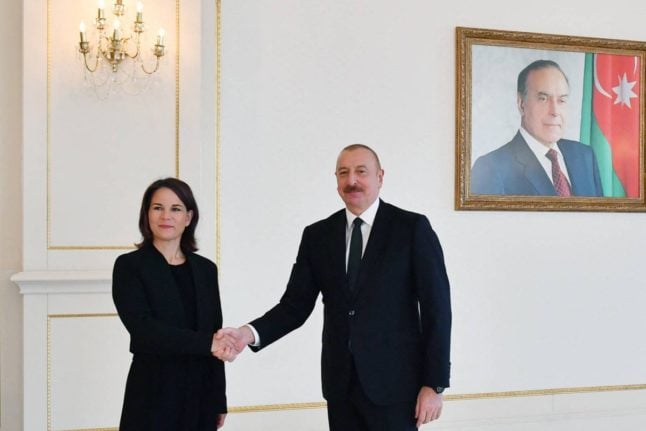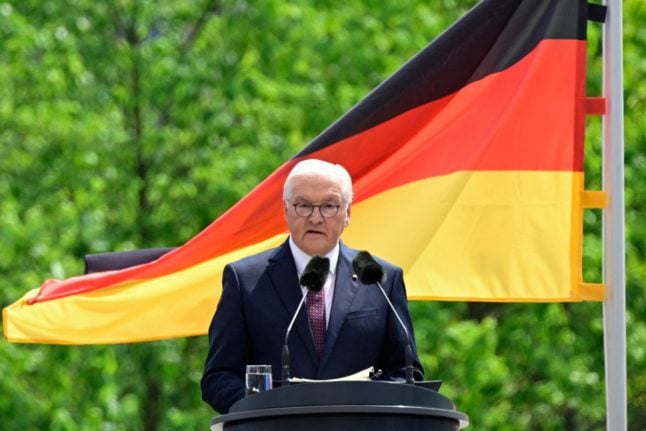German Foreign Minister Annalena Baerbock on Saturday insisted that European mediation was the best option for arch-foes Armenia and Azerbaijan to reach a lasting peace agreement.
The Caucasus neighbours have been locked in a decades-long conflict for control of Azerbaijan’s Armenian-populated region of Nagorno-Karabakh, which Baku reclaimed in a lightning offensive in September.
Armenian Prime Minister Nikol Pashinyan and Azerbaijani President Ilham Aliyev have held several rounds of peace talks under EU mediation. Both leaders have said a peace treaty could be signed in the coming months.
On a visit to Azerbaijan, Baerbock said she had “expressed concern that with certain actors, doubts can be raised whether they really negotiate as honest brokers for peace on the ground”.
Last month, Aliyev refused to attend a round of peace talks with Pashinyan in Spain over what he said was France’s “biased position”.
French President Emmanuel Macron and German Chancellor Olaf Scholz had been scheduled to join EU chief Charles Michel as mediators at those talks. So far, there has been no visible progress in EU efforts to organise a fresh round of negotiations.
“The European efforts for peace offer the most concrete path,” Baerbock told journalists in Baku, speaking alongside her Azerbaijani counterpart Jeyhun Bayramov.
She said she hoped that European-led peace talks could begin “as soon as possible”.
Bayramov confirmed Azerbaijan’s willingness to negotiate “regardless of geography”. He said Baku has tabled “peace proposals to Armenia and if Armenia accepts
them, negotiations can continue”.
Baerbock arrived in Baku from Yerevan where she also said that European moderation efforts “are a bridge and the fastest way to peace”. She has also urged Baku to ensure “a secure and dignified return” of ethnic Armenian refugees to Karabakh.
Almost the entire Armenian population of Nagorno-Karabakh — more than 100,000 people — fled to Armenia after Azerbaijani troops recaptured the mountainous enclave.
Bayramov said that “Armenian residents of Karabakh are full-fledged citizens of Azerbaijan, and all their rights will be respected.”
Until Aliyev refused to attend the Spain talks in October, the European Union and United States had played a lead role in mediating Azerbaijani-Armenian normalisation talks.
The traditional regional power broker Russia — bogged down in its Ukraine war — has seen its influence waning in the Caucasus.



 Please whitelist us to continue reading.
Please whitelist us to continue reading.
Member comments